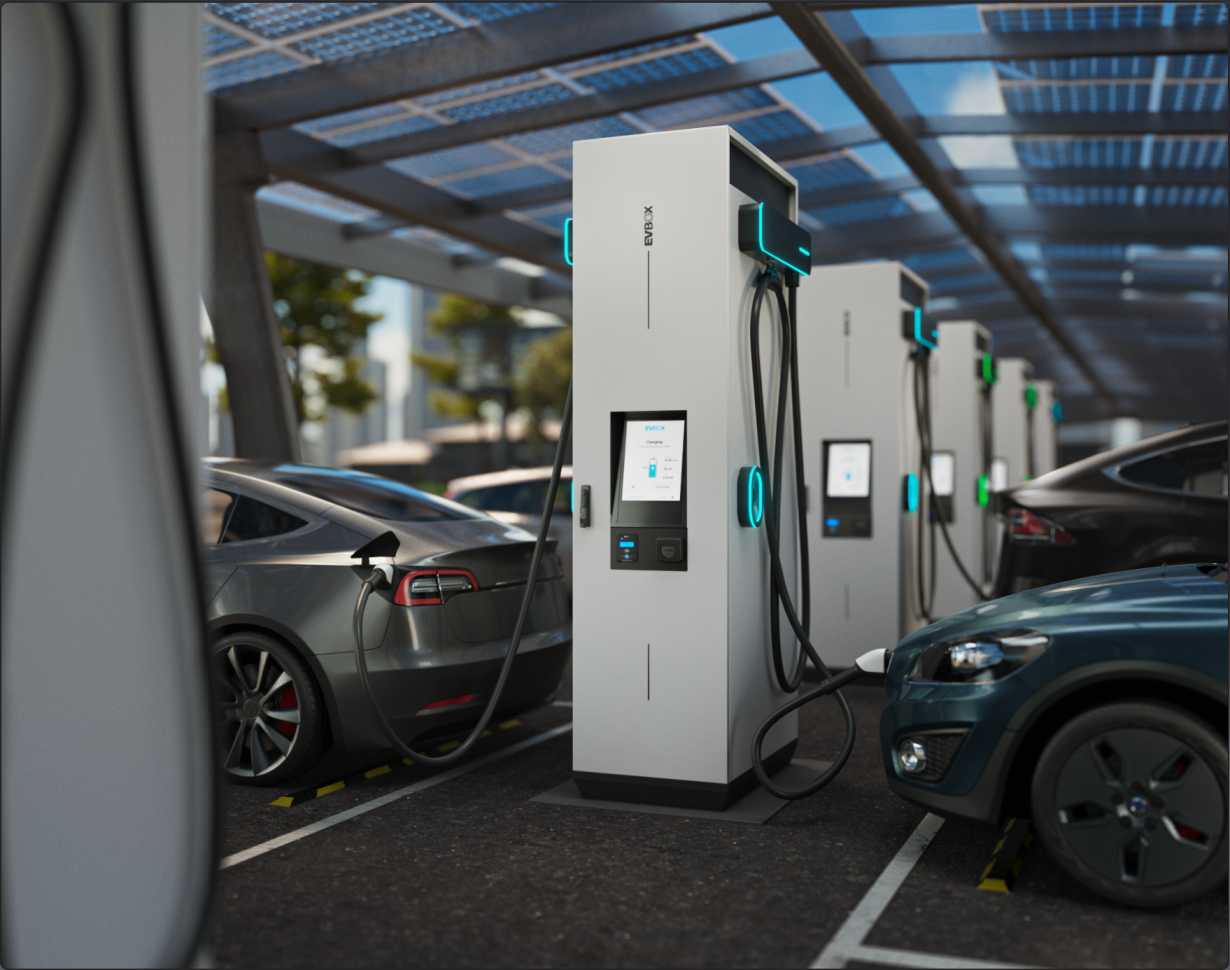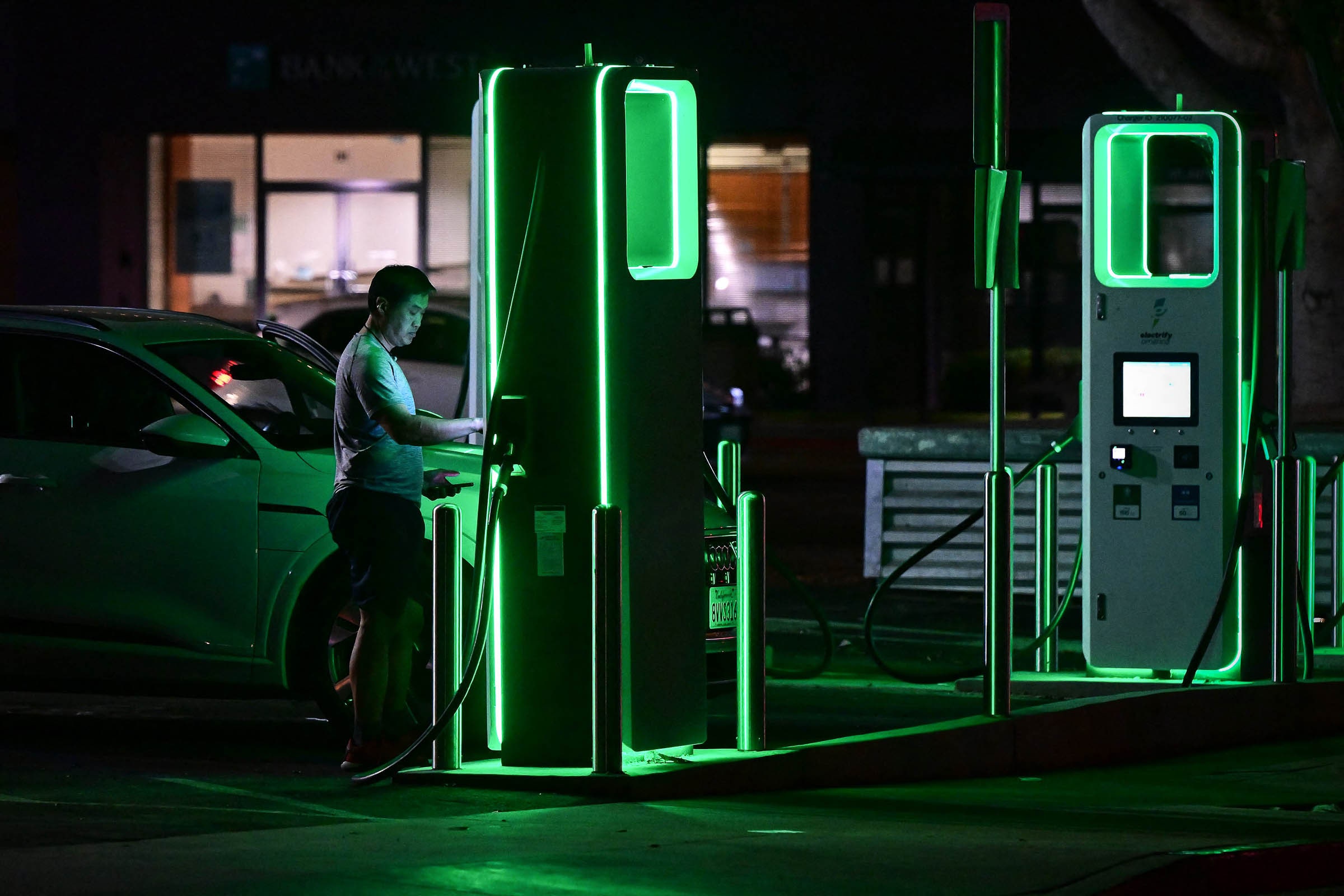Intro-
Looking to power up your electric vehicle on the go? You’ve come to the right place! In this article, we’ll explore the world of electric vehicle charging stations and how they are becoming an essential part of our transportation infrastructure. They are the crucial link that keeps your electric car running smoothly and efficiently.
With the rise in popularity of electric vehicles, the demand for charging stations has skyrocketed. These stations are like gas stations for your electric car, providing the energy your vehicle needs to keep going. Whether you’re hitting the road for a long journey or just need a quick recharge, these are there to keep you moving forward.
But it’s not just about convenience. These stations also play a vital role in reducing our dependence on fossil fuels and combating climate change. By opting for electric vehicles and utilizing charging stations, we’re doing our part to create a cleaner and greener future. So, buckle up as we dive into the fascinating world of electric vehicle charging stations and discover how they are revolutionizing the way we travel.
1. Use an EV charging station locator app.
2. Select your desired charging station and check for availability.
3. Drive to the charging station and park your vehicle.
4. Plug in your electric vehicle.
5. Pay for the charging session and wait until your vehicle is fully charged.
6. Unplug your vehicle and continue your journey.

Source: evbox.com
Electric Vehicle Charging Stations: Revolutionizing the Future of Transportation
In recent years, electric vehicles have gained significant popularity due to their eco-friendly nature and the need to reduce carbon emissions. As a result, the demand for electric vehicle charging stations has skyrocketed. These charging stations are vital infrastructure that allows electric vehicle owners to conveniently charge their vehicles. In this article, we will delve into the world of these stations, exploring their benefits, functionalities, and the future of this rapidly evolving technology.
1. Types of Electric Vehicle Charging Stations
Electric vehicle charging stations come in various types to cater to the needs of different electric vehicle owners. The most common types include:
Level 1 Charging Stations:
Level 1 charging stations are the most basic and typically come with electric vehicles upon purchase. These charging stations require a standard household outlet and provide a charging rate of 120 volts, allowing for a full charge in approximately 8-12 hours. While they are convenient for overnight charging, they are not suitable for rapid charging requirements.
For electric vehicle owners with minimal daily driving needs or access to other charging options, level 1 charging stations may be sufficient.
Level 2 Charging Stations:
Level 2 charging stations offer a faster charging rate than level 1 stations, with charging capacities ranging from 240 to 250 volts. These stations require a dedicated charging unit and are typically installed at home, businesses, and public locations. Level 2 charging stations provide an average charging time of 4-8 hours, making them ideal for overnight or extended charging.
Many electric vehicle owners opt for level 2 charging stations as they strike a balance between convenience and charging speed, allowing for efficient daily charging.
DC Fast Charging Stations:
DC fast charging stations, also known as level 3 charging stations, are the most advanced and provide the fastest charging speeds suitable for quick charging on the go. These stations utilize direct current (DC) technology to supply high voltages, enabling electric vehicles to reach 80% charge in as little as 30 minutes.
DC fast charging stations are commonly found along highways, in commercial areas, and other high-traffic locations, allowing electric vehicle owners to rapidly charge their vehicles during long journeys.
Comparison of Charging Station Types:
| Charging Station Type | Charging Rate | Charging Time for Full Battery | Ideal Usage |
|---|---|---|---|
| Level 1 | 120V | 8-12 hours | Minimal daily driving needs |
| Level 2 | 240-250V | 4-8 hours | Home, business, and public charging |
| DC Fast Charging | Up to 800V | 30 minutes (80% charge) | Long journeys, on-the-go charging |
2. Benefits of Electric Vehicle Charging Stations
Electric vehicle charging stations offer numerous benefits that contribute to the widespread adoption of electric vehicles and the growth of sustainable transportation:
1. Environmental Impact:
By utilizing such stations, individuals are actively reducing their carbon footprint. Electric vehicles produce zero tailpipe emissions, leading to cleaner air and improved overall environmental conditions.
2. Cost Savings:
Compared to traditional gasoline-powered vehicles, electric vehicles offer significant cost savings in terms of fuel and maintenance. Charging an electric vehicle at home or public charging stations is considerably cheaper than regular refueling at gas stations.
3. Convenience and Accessibility:
With the increasing availability of electric vehicle charging stations, it has become easier than ever to charge electric vehicles. Charging stations are being installed in residential areas, commercial spaces, and along major travel routes, providing convenient charging options for electric vehicle owners.
4. Government Incentives:
Many governments around the world offer incentives and rebates to encourage the adoption of electric vehicles and the installation of these charging stations. These incentives can significantly reduce the upfront costs associated with purchasing electric vehicles and charging infrastructure.
5. Diverse Charging Options:
Electric vehicle charging stations offer various charging options to cater to the needs of different electric vehicle owners. Whether it’s slow overnight charging at home or quick charging during long journeys, these provide the flexibility to charge vehicles in a way that suits individual requirements.
3. Future of Electric Vehicle Charging Stations
The future of electric vehicle charging stations looks promising, with advancements in technology and infrastructure aimed at further enhancing the experience. Here are some exciting developments to look out for:
1. Increased Charging Speeds:
Ongoing research and development efforts are focused on improving charging speeds. The goal is to significantly reduce charging times, making electric vehicle charging as quick and convenient as refueling at a traditional gas station.
2. Enhanced Public Charging Infrastructure:
Public charging infrastructure will continue to expand, with an emphasis on installing more charging stations in high-traffic areas such as shopping centers, parking lots, and residential areas. This expansion will ensure widespread accessibility and eliminate range anxiety among electric vehicle owners.
3. Integration with Renewable Energy Sources:
Renewable energy sources such as solar and wind power are being integrated with electric vehicle charging stations. This integration allows for greener and more sustainable charging options, further reducing the carbon footprint associated with electric vehicle usage.
In conclusion, electric vehicle charging stations play a crucial role in the widespread adoption of electric vehicles and the transition towards a more sustainable transportation system. With the benefits they offer and the promising future developments, electric vehicle charging stations are revolutionizing the way we travel while prioritizing the planet’s well-being.
Key Takeaways:
- Electric vehicle charging stations are infrastructure that allows electric cars to charge their batteries.
- They are located in various places such as parking lots, shopping centers, and along highways.
- Charging stations are important for the widespread adoption of electric vehicles.
- Many charging stations provide fast charging options, allowing cars to be charged quickly.
- As the demand for electric vehicles grows, more charging stations are being built to meet the needs of drivers.
Frequently Asked Questions
Electric vehicle charging stations are becoming increasingly popular as more people make the switch to electric vehicles. If you’re considering buying it or already own one, you may have questions about charging stations. Here are some commonly asked questions about these charging stations:
1. How long does it take to charge an electric vehicle at a charging station?
The time it takes to charge an electric vehicle at a charging station depends on a few factors. The charging speed is determined by the charging station’s power output and the vehicle’s charging capabilities. Some charging stations can charge an electric vehicle to 80% in around 30 minutes, while slower chargers may take several hours.
It’s worth noting that most electric vehicle charging is done overnight at home using a Level 2 charger, which typically takes around 4-8 hours to fully charge a vehicle. Public charging stations are useful for topping up your vehicle’s battery while you’re out and about or for quick charging when needed.
2. How many electric vehicle charging stations are available?
The number of electric vehicle charging stations is constantly growing as more people adopt electric vehicles. The availability of charging stations varies depending on your location, but they are becoming more widespread. In the United States, there are tens of thousands of public charging stations, with more being installed every day.
To find charging stations near you, you can use smartphone apps or online platforms that provide real-time information on the location and availability of charging stations. These apps also often include features such as reviews, charging station amenities, and pricing information.
3. Do I need a special adapter to charge my electric vehicle at a charging station?
Most electric vehicles come with a charging cable that includes an adapter for standard charging stations. However, some electric vehicles may require additional adapters or cables to access certain types of charging stations. It’s important to check your vehicle’s manual or consult the manufacturer to ensure you have the correct equipment to charge your electric vehicle at different charging stations.
Additionally, some charging networks or charging station operators may require you to have a specific membership, app, or RFID card to initiate the charging process. Be sure to familiarize yourself with the specific requirements of the charging stations you plan to use.
4. Can I use a public charging station for free?
While some public charging stations offer free charging, many do require a fee. The cost of charging at public stations can vary depending on the charging network, location, and type of charging. Some charging stations offer pay-as-you-go options, while others require a membership or subscription.
It’s important to research the charging options and costs in your area and consider signing up for charging networks and services that align with your needs. Many electric vehicle manufacturers also offer membership programs that provide benefits such as discounted or complimentary charging at participating stations.
5. Can I charge an electric vehicle at home without installing a dedicated charging station?
Yes, it is possible to charge an electric vehicle at home without installing a dedicated charging station. However, it is recommended to have a dedicated charging station for optimal charging speed and convenience. A Level 2 charging station, which requires installation by a qualified electrician, provides faster charging compared to a regular household outlet.
Using a standard household outlet, often referred to as Level 1 charging, will still allow you to charge your electric vehicle, but it will take longer. It’s important to consult with an electrician to ensure your electrical system can handle the charging requirements of an electric vehicle before attempting to charge using a regular household outlet.

Source: wired.com
Why EV Charging Stations Suck (And How to Fix It)
Summary
Electric vehicle charging stations are important because they allow us to charge our electric cars. These stations are like gas stations for electric cars. They have special plugs that fit into the car and provide the electricity needed to charge the battery. There are different types of charging stations, such as level 1, level 2, and fast chargers. Level 1 chargers are slower, while level 2 chargers are faster. Fast chargers can charge a car very quickly, but they are not as common. Charging stations can be found in different places, like parking lots, shopping centers, and even on the side of the road. It’s important to have more charging stations available to make it easier and more convenient for people to charge their electric cars.
In conclusion, these stations are an essential part of the infrastructure needed to support the growing popularity of electric cars. They provide a way for electric car owners to charge their vehicles and keep them running. With more charging stations available, it will be easier for people to use electric cars and contribute to a cleaner environment.
